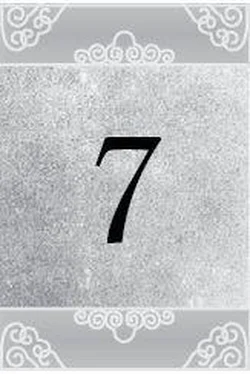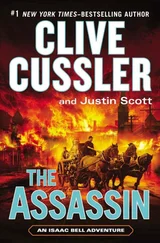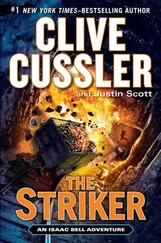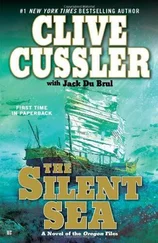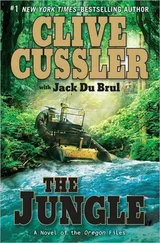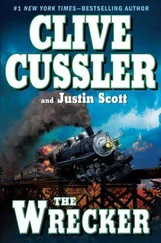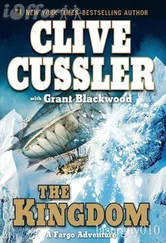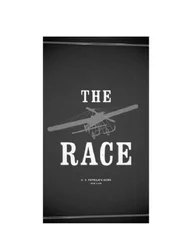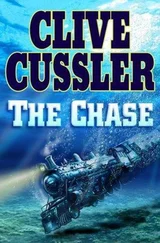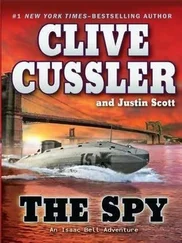“Now what?”
“Behave as though we can still win until somebody proves we didn’t. Drive the rest of the way to Reims, check into our hotel, and spend the last of the afternoon preparing to come back here after dark.”
* * *
AT HIS OFFICE in Szeged, Arpad Bako sat at the head of a long rosewood conference table, studying the executives ranged around it listening to a report by the director of foreign sales. He used such times, when they were paying attention to something else, to study them. They were smart men, all of them. Some were scientists—biologists, pharmacists, chemists—who worked to improve various medicines the company sold and discover new ones. Others had medical degrees and performed the drug testing and dealt with hospitals and universities. Still others were lawyers. Bako had gone to the university, but he was not their equal in education or intellect.
He was, however, a cunning man. It must be obvious to these men that the report they were listening to was impossible, a piece of fiction. The sales of narcotic painkillers and tranquilizers that had value in the underground economy of Europe were being overreported. The numbers on the board showed they were being bought by legitimate foreign entities in far from proportionate numbers in every market. Even in countries that had famous hundred-year-old pharmaceutical companies like Switzerland and Germany, the doctors must all be prescribing Bako products. It was absurd. In a couple of instances, the sales manager reported sales of Bako drugs in distant countries that must be larger than the number of prescriptions written for every other purpose during a year. Yet Bako’s executives listened to it without blinking. No numbers were kept secret from them. Everyone in the room had gotten rich by phantom sales, he knew, and they should be forced to hear the numbers. If they wisely chose not to compare the numbers with anything else they knew or to express doubts, then all must be well for the present. They were content with the status quo.
Bako’s cell phone buzzed. A couple of the men jumped and then turned to look at the others with wry expressions, hoping some rival had been caught being rude and foolish in the meeting, but when they saw Bako taking his phone from his pocket they looked away. He read the number on the display and said, “Please excuse me, gentlemen. I need to take this call.”
All of the dozen men stood up instantly, gathered items like laptops and tablets, pens and coffee cups, and filed out of the room. The last man out was the sales manager, who looked relieved. When the soundproof door was shut, Bako flipped his thumb to receive the call.
“Hello, Étienne,” said Bako. “I’ve been wondering when you would call. Good news?”
Étienne Le Clerc chuckled. “It’s such good news that you might think it’s bad. We found the treasure chamber right where we expected it, in the middle of the old battlefield. It’s big. Attila must have left Germany and France without two coins to rub together. You could have left me out of this, done it yourself, and made an extra hundred million euros.”
“There’s that much, eh? And you could be calling now to lie and tell me that there was no treasure—that someone beat us to it.”
Le Clerc laughed. “I suppose this means we’re both almost honest.”
“Nearly so,” said Bako. “Or maybe we choose our victims wisely. The treasure is wonderful news. Can you send me a photograph of the inscription?”
“Inscription?”
“The Latin message. Somewhere in each treasure chamber there is a message from Attila. Didn’t you find it?”
“I suppose we must have taken it. I haven’t seen it yet.”
“It’s hard to miss.”
In Le Clerc’s voice was a faint warning, just a small cloud forming on the horizon. He said, slowly and distinctly, “You haven’t seen the contents of the chamber. It is literally tons of gold and silver, much of it ancient, even pre-Roman. If you want Latin writing, I’ve got plenty of that. There are whole books of it, with gold bindings studded with gemstones.”
“I’m sorry, my friend,” Bako said. “It must be different this time. The first one was deeply engraved into an iron slab the size of a door.”
“We didn’t find anything like that,” said Le Clerc. “I’ll look into it. Oh, and that reminds me. You said we should watch for the man and woman who would try to get there first. They were actually what prompted me to call. They’re here. My men saw them drive up to the battlefield in a convertible and survey the field.”
“Then things are better than I thought. If you can kill them, then we have all the time in the world to find that inscription.”
“Don’t worry,” said Le Clerc. “I’ve still got men out at the site tonight removing the last bits before they cover everything up. We’ll find the inscription. And, in the meantime, those people can be made to disappear.”
* * *
AS SOON AS they were in the city, Sam inquired about renting a truck. He found an agency and rented one that had a bed eight feet wide and nearly twenty long, with a closed cargo bay. Remi took a photograph of a sign from a feed store and went to a printer to have it blown up and reproduced as magnetic signs and then stuck two to the truck’s sides.
Sam and Remi went to their hotel, which was like a gated château, and slept for a few hours before they woke to get ready. Sam assembled a metal detector and a magnetometer. They packed up their shovels and crowbars, night vision gear, and backpacks, and ate a dinner in the hotel consisting of duck l’orange with Rosé des Riceys, a local wine that was reputed to be one of Louis XIV’s favorites. They ended it with crêpes suzette.
At midnight they got into their rental truck. Sam drove and Remi sat beside him, trying to navigate. They drove along the curving rustic highway to the hamlet of Cuperly and then headed north. It was only a short time before they reached the field they had found in the late afternoon. Sam pulled the truck to the side of the road.
“Well, let’s go see what they were digging out there,” said Remi as she put on her backpack.
Sam replied, “Let’s hope they just have big gophers in France.”
They climbed a stone fence and walked into the field. Remi consulted the photos she’d taken that afternoon to guide them to the first hole they’d seen from the road. As they approached the hole, they put on their night vision goggles and knelt beside it. The sight was confusing, so they used their shovels to clear away some of the dirt.
“What is that?” Remi said. She reached down and touched it. “Steel. It looks like a cannon.”
“You’re right.” Sam dug around it a bit with his hand, then stopped at the muzzle. “I think it’s a French 75.”
“That’s a cocktail,” she said. “Gin, champagne, lemon juice, and sugar, I think.”
“Well, this is the cannon they named it after,” he said. “Something about the hangover, I imagine. This is also why we have to be careful when we dig in France. The Marne is just to the south and east beyond that field. In the summer of 1918, General Ludendorff planned a big offensive to take the Champagne region. The allies got a copy of his plan, moved a lot of artillery around, and, an hour before the German attack, opened fire with over three thousand cannons. I’m guessing from the position and condition of this cannon that it probably got damaged in the return fire—or just got too hot.”
“Whoever got here before us probably picked up a big spike on their magnetometer, dug down, and found it,” said Remi.
“Let’s go look at the next hole.”
They moved toward the next one in the field, stopped, and looked in. At the bottom of the hole was what seemed to be the remains of a couple of wooden crates, both age-darkened and rotted-away. There was also the metal rim of a wagon wheel and the hub. Sam cautiously poked at the crates, which were as soft as wet cardboard. He saw the row of five cannon rounds, shaped like giant bullets, the brass casings green with patina from being buried for so long and the projectiles a uniform gray. “There’s a find,” he said. “Unexploded ordnance. It looks like a buried caisson. Let’s move on.”
Читать дальше
